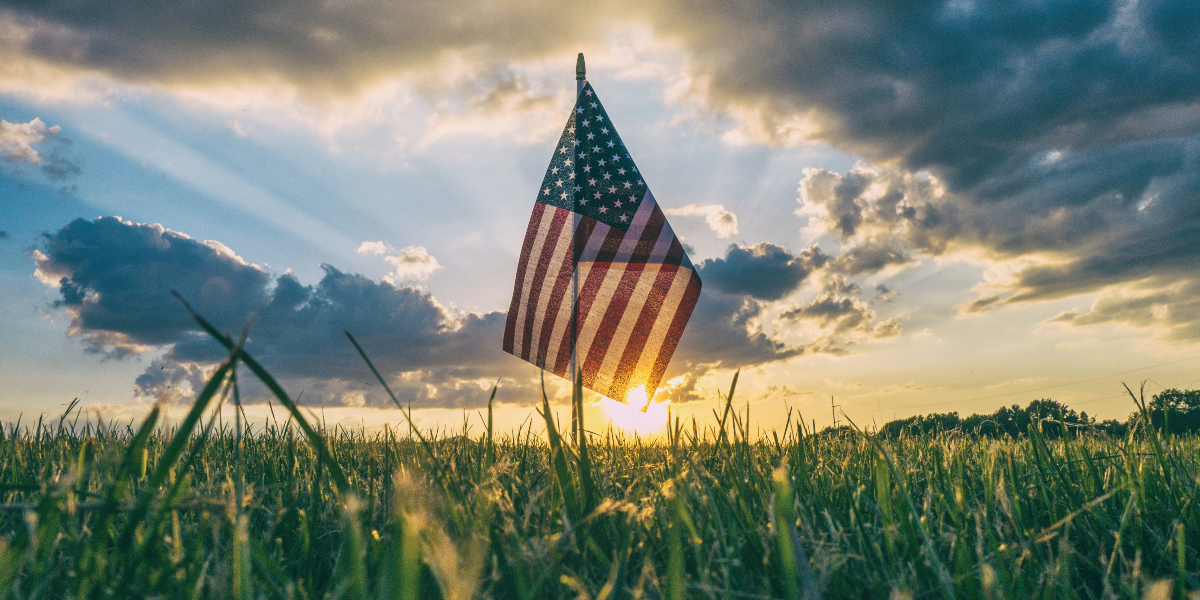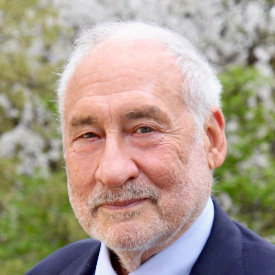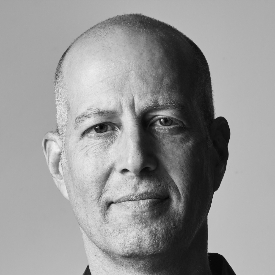Joseph Stiglitz is a professor of economics, public policy, and business at Columbia University. He received the Nobel Memorial Prize in Economic Sciences in 2001. Formerly, he was the senior vice president and chief economist of the World Bank, as well as a former member and chairman of the Council of Economic Advisers under the Clinton administration.
Below, Joseph shares five key insights from his new book, The Road to Freedom: Economics and the Good Society. Listen to the audio version—read by Joseph himself—in the Next Big Idea App.

1. Americans rightly value freedom.
Americans rightly value freedom, but the meaning of freedom in our popular, political, and economic culture is far from what it should be. A redefinition of freedom commensurate with our times and needs will make more citizens in this country more free—free from hunger, unemployment, poverty, and (as FDR emphasized) freedom from fear. People with just enough to get by don’t really have freedom—they do what they must to survive. We need to focus on the freedom to live up to one’s potential, flourish, and be creative.
2. One person or institution’s freedom is another person’s unfreedom.
As Isiah Berlin put it, freedom for the wolves has often meant death to the sheep. Freedom to carry a gun may mean death to those who are gunned down in the mass killings that happen almost daily in the United States. Freedom not to be vaccinated or wear masks may mean the loss of freedom to live for others. Freedom for the thief means a loss of freedom for everyone else in society in multiple ways.
There are tradeoffs—and tradeoffs are the bread and butter of economics. Sometimes how these tradeoffs should be made is obvious: We should curtail corporations’ freedom to exploit. The freedom of the exploited is more important than the freedom of the exploiter. But sometimes the tradeoffs are more complex, and how to assess these tradeoffs is more difficult. In this book, I provide a way of thinking through such hard cases.
3. Collective action can meaningfully expand everyone’s freedom.
Working together can allow everyone to do more than they otherwise could. This leads to a seeming quandary: A little coercion can expand everyone’s freedom. Stoplights are an example. A red light curtails my freedom to cross the intersection. But without stoplights, there would be gridlock. A little regulation enhances all our freedoms.
“The coercion of taxation can expand all our freedoms in a meaningful sense.”
This reasoning has broad application. If we are to make the necessary social investments for a 21st-century economy—in basic research and technology, infrastructure, education, and health—we need tax revenues. That is, there is a need for some compulsion. Everyone would otherwise take a free ride on the contributions of others.
Russia’s invasion of Ukraine has reminded us that if we are to be free from the fear of harm coming from outside, we need defense, and that also has to be paid for. Again, the coercion of taxation can expand all our freedoms in a meaningful sense.
4. How neoliberal capitalism affects freedom.
Neoliberalism turned out to be even worse for meaningful economic freedom than some of us had feared. It is also far less efficient (except in exploiting the unwary) than its advocates claimed. It led to the crisis of the Great Recession, which was the worst economic downturn in three-quarters of a century. Millions lost their jobs and homes. It resulted in an economy that is not resilient, which was made painfully evident during the Covid-19 pandemic, with shortages of baby formula, as well as soaring prices. Because of neoliberalism, we face an inequality crisis and a childhood diabetes crisis, and we have not been able to respond adequately to the climate crisis. We face a political crisis caused by mis- and disinformation. And we face a polarized society, largely caused by social media companies maximizing profits through engagement by enragement.
A half-century ago, in his book Capitalism and Freedom, Milton Friedman claimed that “free markets” were the only way to ensure political freedom, and Friedrich Hayek, in his 1944 book, The Road to Serfdom, claimed that a bigger state would lead to the loss of our freedom. Both were Nobel Prize-winning economists. Both were wrong in their analyses of the efficiency and stability of the economy. But their political analyses were even more flawed.
The road to authoritarianism is not paved by the government doing too much but by it doing too little. Time and again, we have seen that doing too little about unemployment, economic insecurity, and other major societal problems gives rise to discontent, populism, and the public being taken advantage of by demagogues. Right now, the United States is going down this path by doing too little about inequality. Only by embracing a different and more expansive definition of economic freedom can we hope to right the ship.
5. The economic system of good societies with free citizens.
We’ve become a rich country with unhappy people and a declining life expectancy. We are a polarized society with political gridlock.
“Progressive capitalism requires regulations to ensure competition and prevent exploitation.”
A 21st-century economy and society requires a rich set of institutions, from profit-making firms to cooperatives, unions, an engaged civil society, not-for-profit institutions, and public institutions. Indeed, much of the country’s success evolves from initial research done at our universities, which must all be either state-supported or not-for-profit foundations. I call this new set of economic arrangements progressive capitalism.
Progressive capitalism requires regulations to ensure competition and prevent exploitation. It takes the environment into account, reducing the freedom of its polluters so the rest of us can enjoy the freedom of clean air and water. Progressive capitalism makes the investments in research and development, education, and health that are necessary for a healthy, prosperous, and dynamic modern economy and society. It finances these necessary public expenditures using progressive taxes, where the rich pay at least as high of a percent of their income in taxes as the rest of us and creates a legal framework that promotes greater economic and social justice by curtailing corporate power in favor of enhancing workers’ power. By reducing inequality, it promotes social cohesion.
Progressive capitalism is an economic system that will help set us on the road to freedom and a good society.
To listen to the audio version read by author Joseph Stiglitz, download the Next Big Idea App today:






























